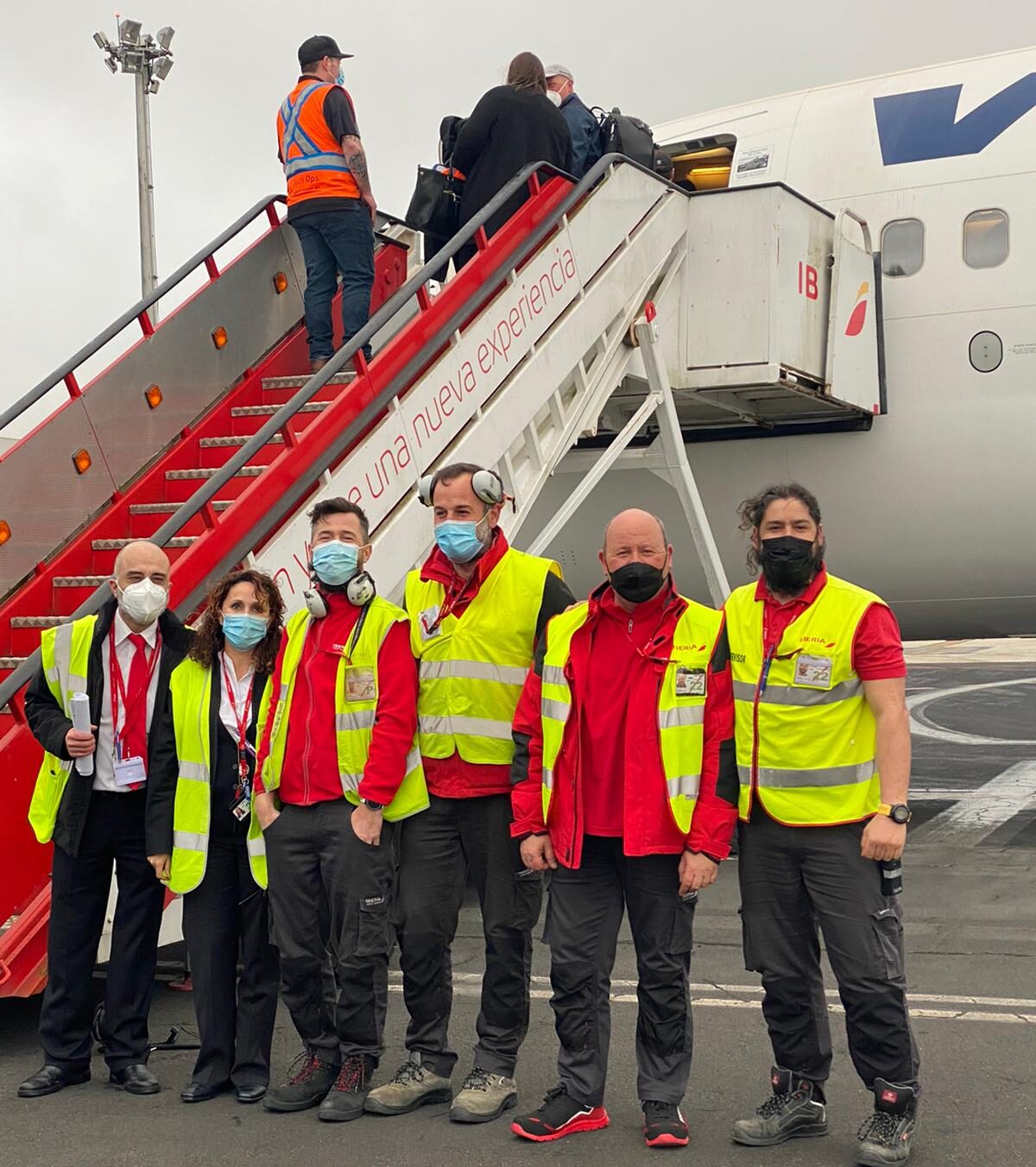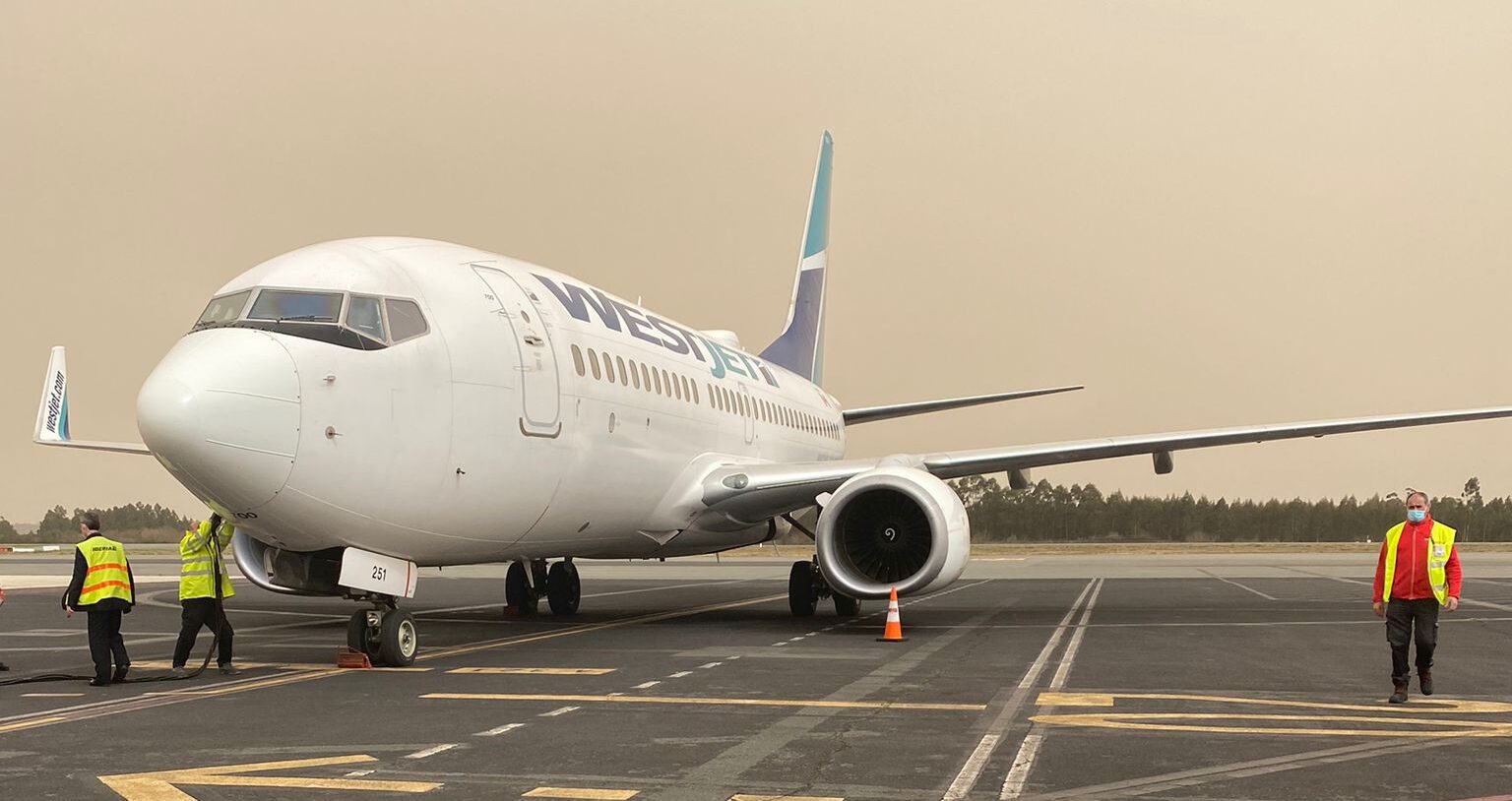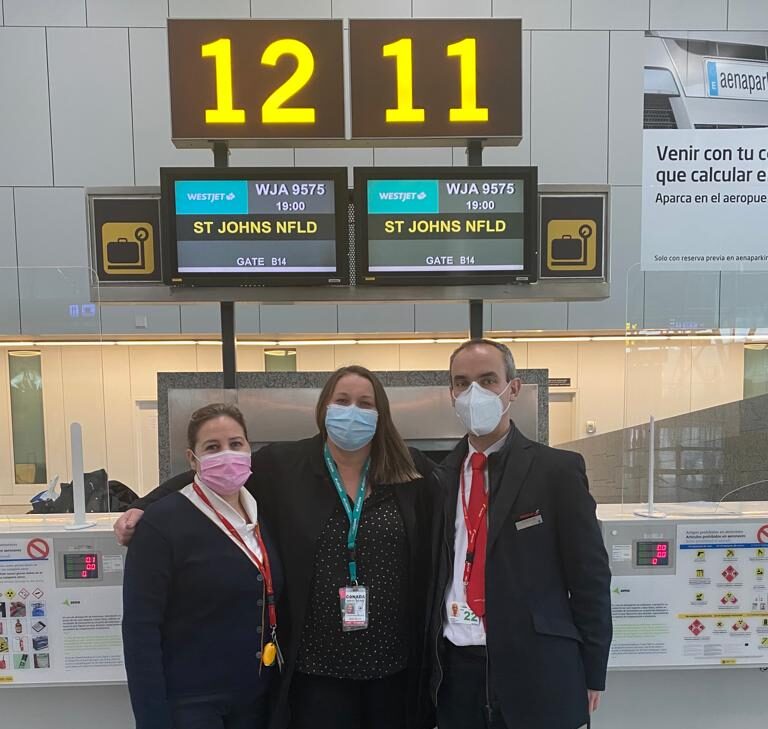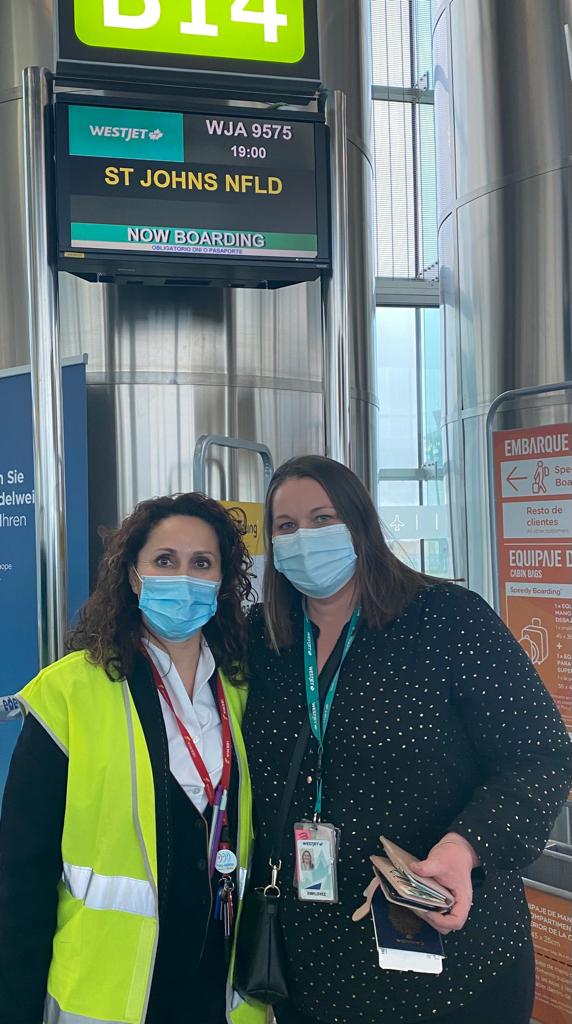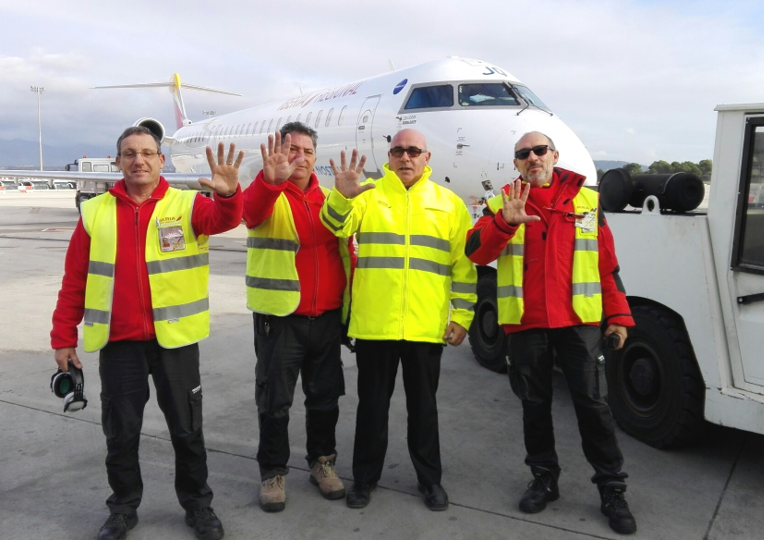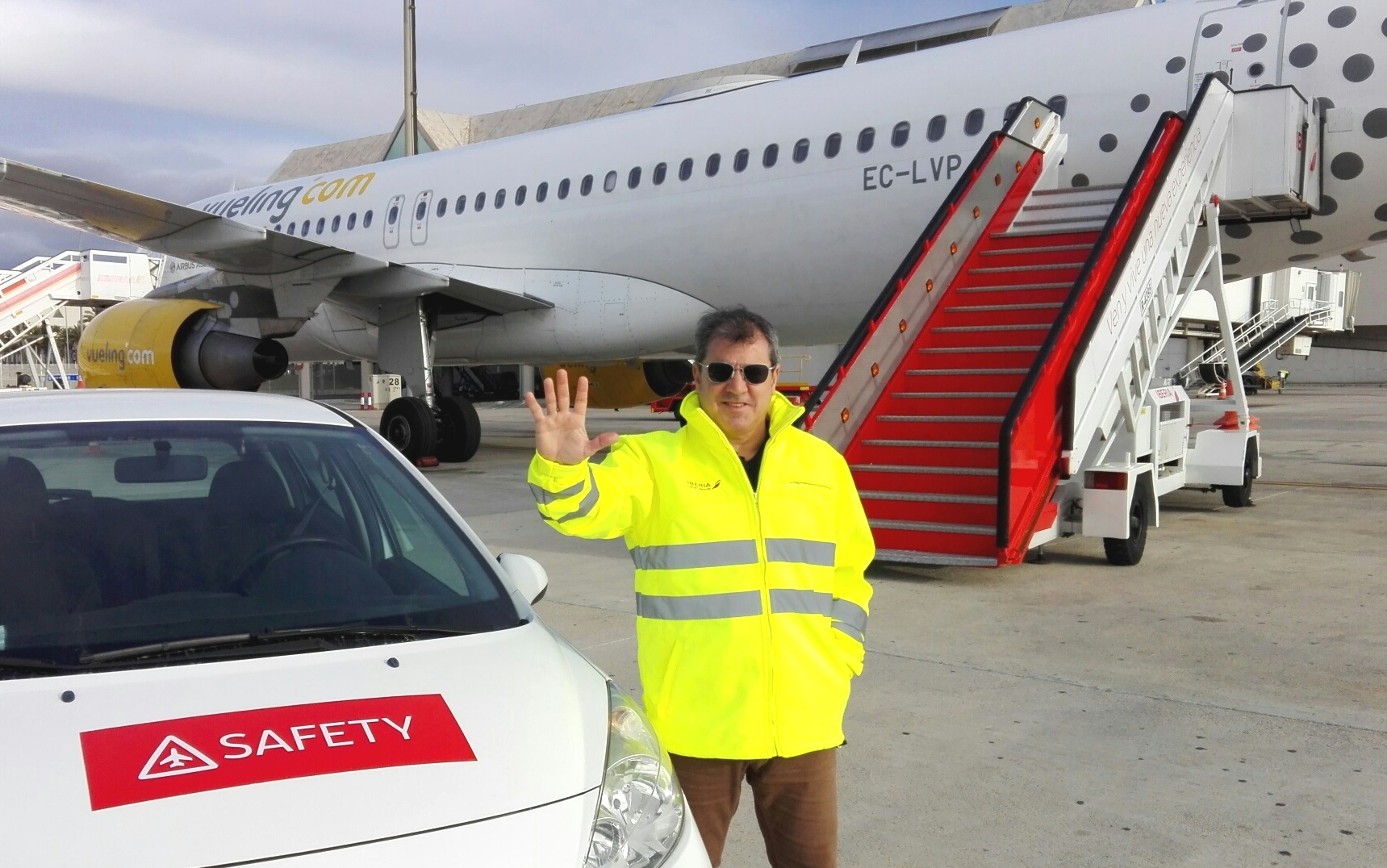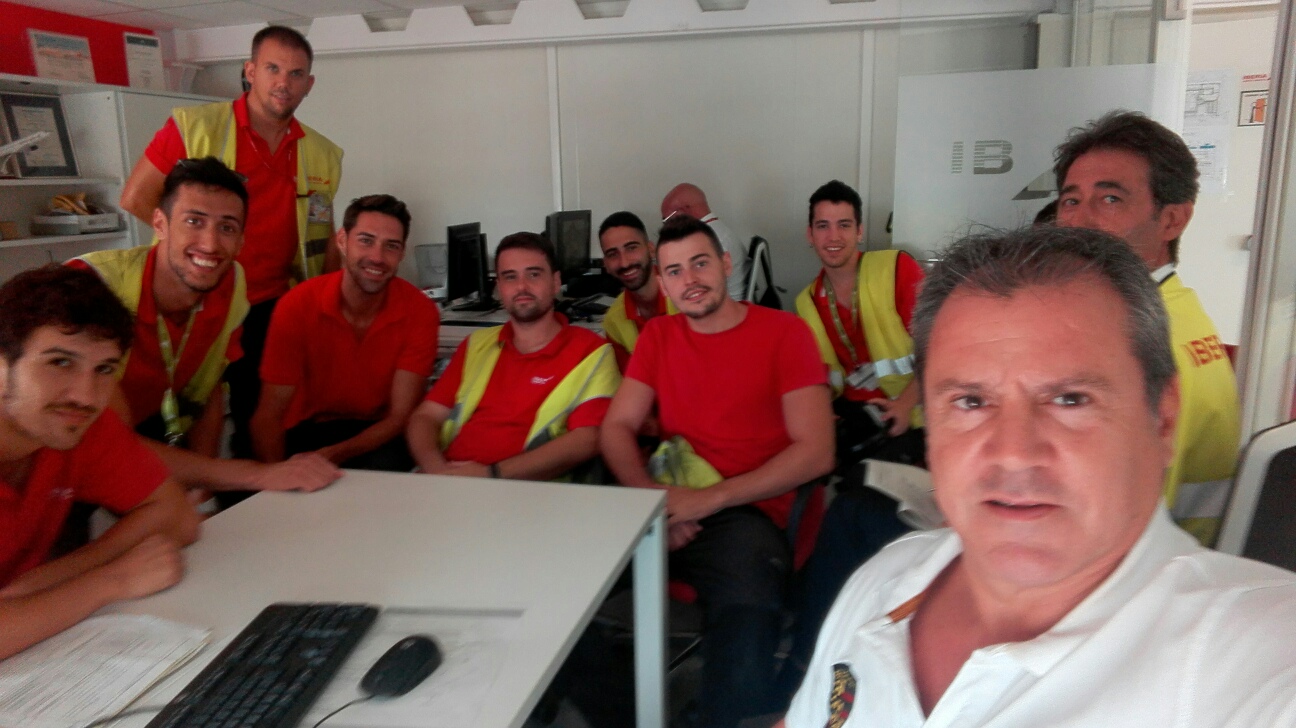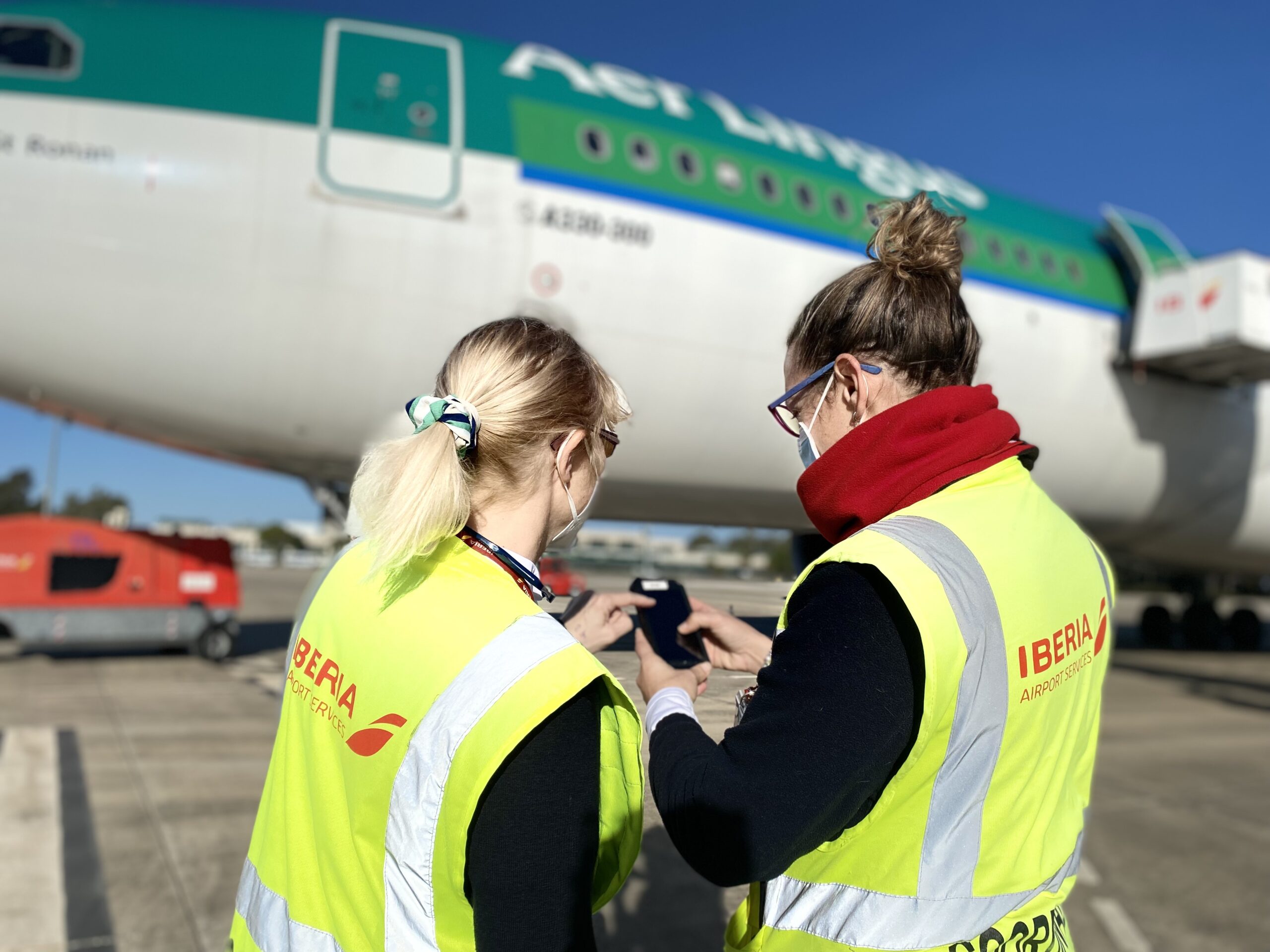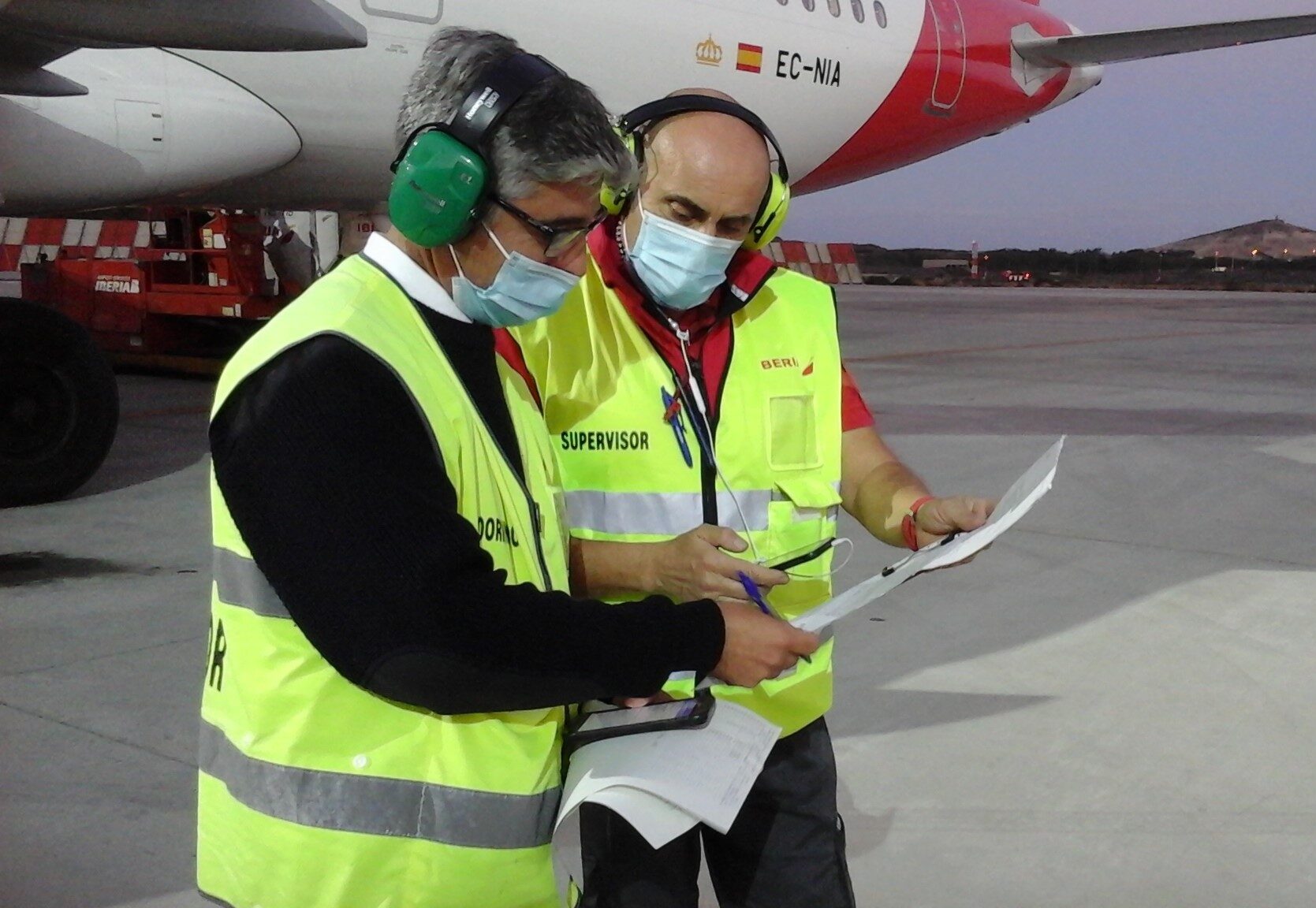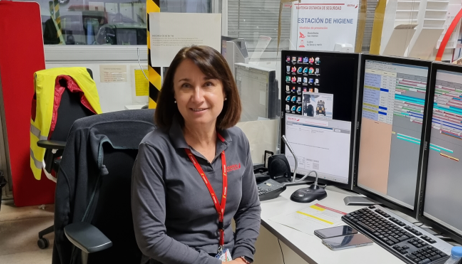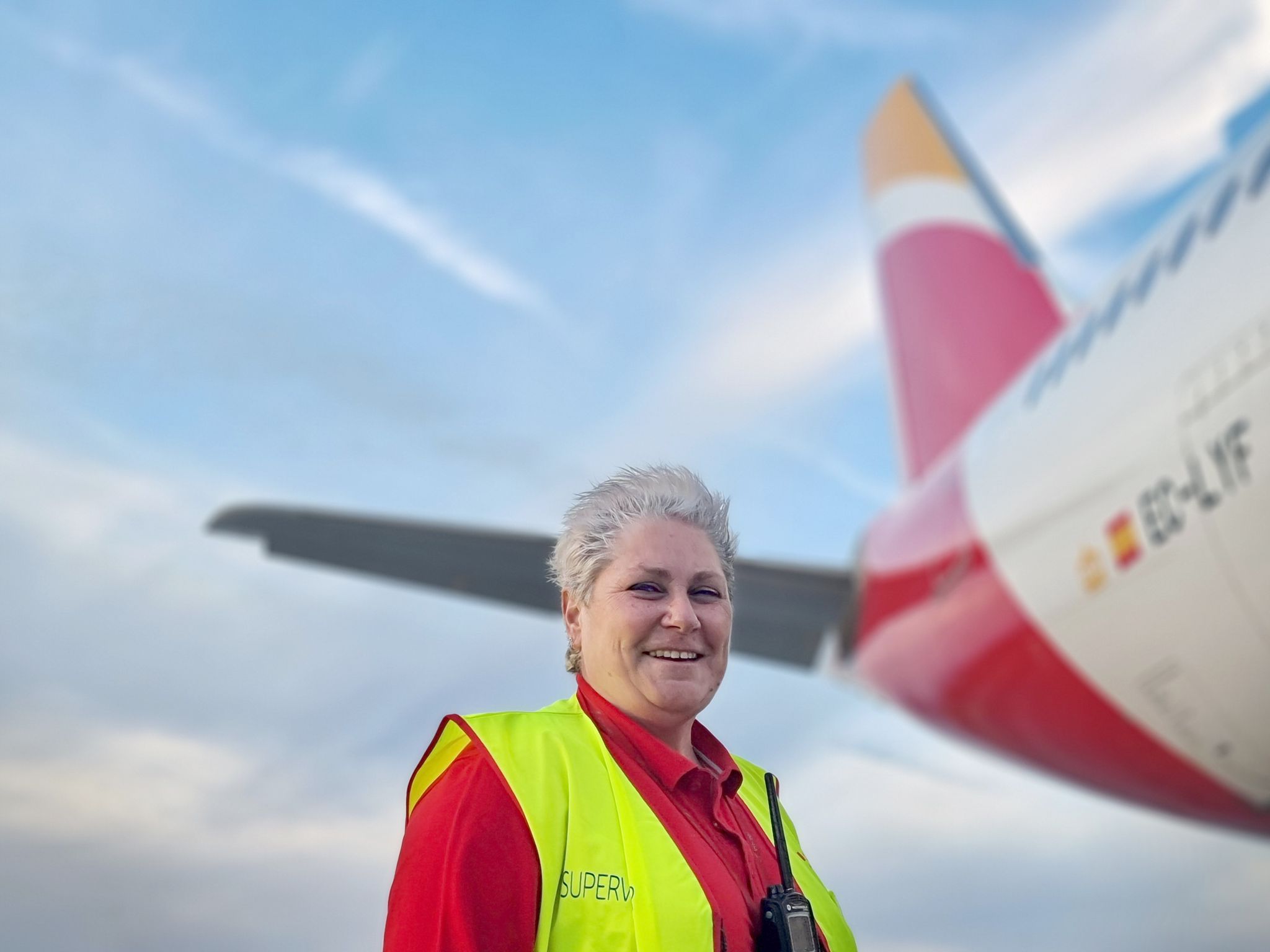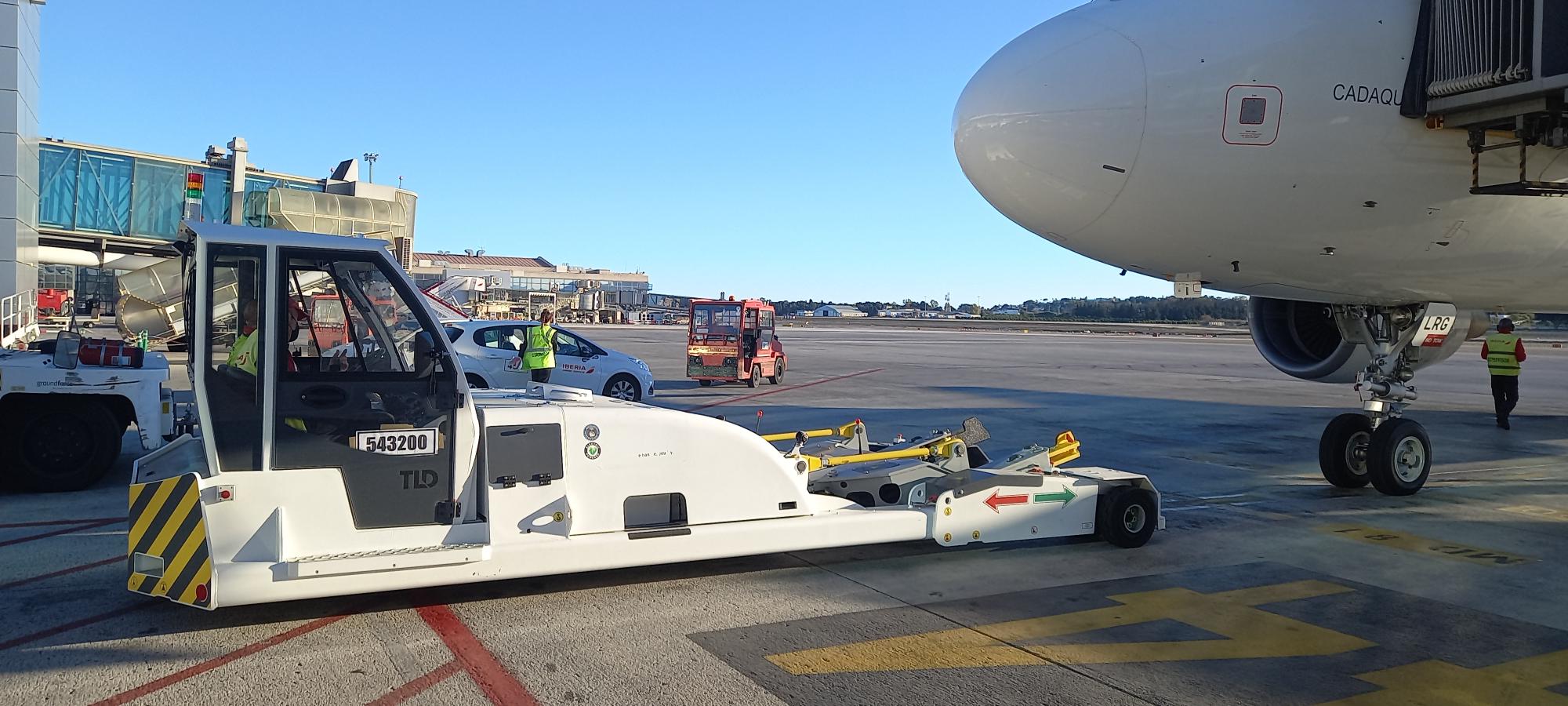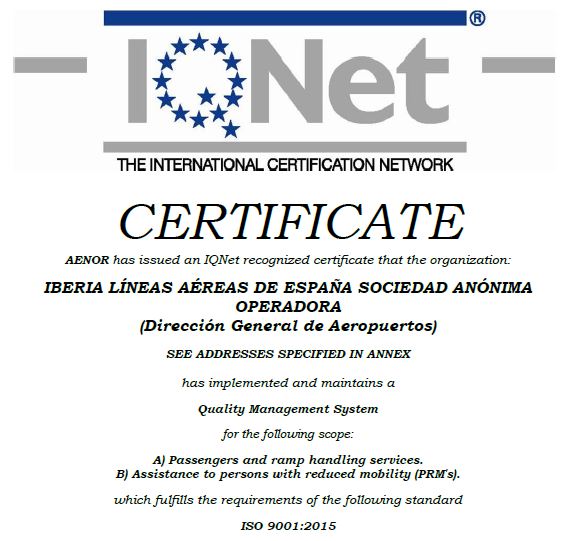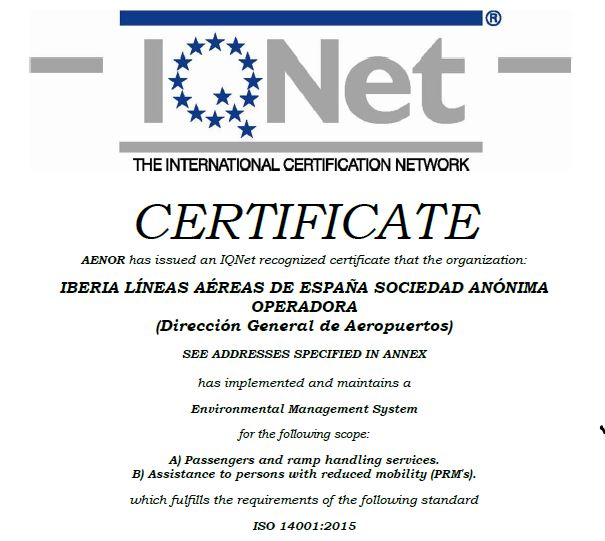In 2015 Iberia Airport Services (IBAS) became the leading provider of ramp handling services to third parties in the Aena network, with a presence at 29 airports, including Madrid-Barajas, Barcelona-El Prat, Palma de Mallorca, Malaga, Alicante, Asturias, Bilbao, Gerona, Gran Canaria, Ibiza, Menorca, Reus, Santiago de Compostela, Tenerife North and Tenerife South. Among Aena’s 20 largest airports, it is only absent in Fuerteventura, Lanzarote, Seville, Valencia and the tandem La Gomera-El Hierro. We interviewed José Luis de Luna, who is the director of airports at IBAS, the company he has been working for for almost nine years, although he has 30 years’ experience in the sector, having previously worked for Aena and FCC airport services companies such as Eurohandling and Flightcare.
What responsibilities does your position within Iberia Airport Services entail?
At Iberia I started as airport network manager, being responsible for all the facilities except Madrid. Now my position as airport director occupies all the airports, the 29 that we obtained from the 2015 tenders. My commitment, so to speak, is complete. I am responsible for the income statement, i.e. the economic result that the handling business has to deliver. Also from the point of view of operations, operational safety, human resources, training, the commercial side, etc.
What are the figures for aircraft handled by Iberia Airport Services in 2020 and 2021 and what do they represent with respect to the reference year of 2019? What economic impact do these figures represent?
Indeed, 2019 is the year we now take as the benchmark year in all areas. At that time we set the milestone of exceeding 100 million passengers across the entire airport network on board some 450,000 aircraft (1), with a turnover of €470 million.
Then came the atypical 2020, which after its ups and downs accounted for only 40% of 2019 values.
In 2021, IBAS served 199,038 aircraft – up 43.8 per cent on 2020 – handled 32.9 million pieces of baggage – up 81.4 per cent – and handled more than 328,600 tonnes of freight, up 32 per cent on 2020. Financial figures are not yet available and will be published on 25 February. This year 2021 has had a continuous upward recovery curve, until the last two months, which have been weighed down by the appearance of the omicron variant of the virus. These figures mean that in 2021 we will have recovered around 70% of the values of 2019. For the same reason as omicron, the first two months of 2022 have been weak, but nevertheless the outlook for this year is optimistic: we expect to end up with similar or even better results than in 2021.
Other figures to take into account are those of staff and equipment. In 2019 we reached a peak of 9,000 people (we must take into account the high seasonality of some airports). Iberia Airport Services has a total of 8,500 pieces of equipment of all types, ranging from a push back tractor or a planter to a baggage trolley.
(1) weighted aircraft. This Aena concept is used, whereby each aircraft model has a value in ramp handling work, with a reference value for models equivalent to the A319. Regional aircraft, with simpler needs, are weighted below this value, while wide-body aircraft, which are much more complex, are weighted above it.
“We have been clearly committed to sustainability and reducing CO2 emissions for some time now, and in recent years we have invested 100 million euros in renewing all our equipment”.
What was the hardest time during the pandemic alert and how did you manage the company’s staff and equipment?
The most complicated month was April 2020, with a 95% drop in activity, i.e. we only handled 5% of the traffic with several airports practically closed. May was very similar.
In terms of personnel, we were clear that we wanted to have a commitment to stability and quality of employment, which we have been able to maintain thanks to a tool made available by the State, such as the ERTE. In this way, apart from some contracts that were coming to an end and that we obviously could not renew, the workforce has not had any departures and has been reactivated little by little, as traffic has been recovering. In addition, we made a great effort to supplement the salary provided by the SEPE, up to 100%. In November 2020, this supplementary amount had to be reduced and from March 2021, given the company’s economic situation (Iberia ended up losing around 1.5 billion euros), it could no longer be maintained, although we must also consider that there were fewer and fewer workers in the ERTE and we even ended up removing all of them.
Regarding equipment, a preservation plan was put in place at all airports, so our maintenance provider had to stop and protect mechanical and other elements such as wheels. As far as possible, we tried to move them to more protected spaces, such as a workshop. Equipment that was left out in the open had to be completely covered with plastic sheeting. In turn, this work had to be reversed afterwards, with a de-preservation that was practically completed in 2021.
On the human side, I have to highlight the behaviour of our workers, just as happened with the storm Filomena; in the most complicated moments they have had an exemplary response.
What are your forecasts for market recovery in the short term (3-5 years)?
In our business plan, which we are currently implementing and which runs from 2022 to 2025, we are defining two clear phases. We consider 2022 and 2023 as two years of “crossing the desert”, still complicated, in which we do not believe we can still reach the levels of 2019 and, therefore, we will have to continue with some of the measures we have had to implement previously. When are we going to recover the values of 2019? If no new variants or unforeseen circumstances arise, almost certainly in 2024, or even at the end of 2023. This does not mean that, at specific moments, in certain months and at certain airports, we will achieve 100% of 2019 activity. In fact, this has already happened in 2021: Palma de Mallorca, for example, reached the 2019 level at certain times during the summer. Tenerife Norte even surpassed them. The smaller airports or those in the north are, on the other hand, the ones whose recovery is the most delayed. The other two years, 2024 and 2025, are expected to see a recovery in activity to similar or even higher levels than in 2019.
Aena will divide the concession of a total of 41 licences for the period 2023-2029 into 21 lots. How many are Iberia bidding for and what would be considered a good result?
We are leaders in Spain and we are going to bid for all the airports. Right now we are present in 29 facilities. Our ambition is to expand our presence to more airports, in addition to continuing in the ones where we are. Therefore, the minimum we aspire to is to repeat the same result as in 2015. Obviously Madrid and Barcelona are essential for us, as they are the hubs of Iberia and Vueling, respectively.
The draft specifications were in the hands of the handling companies for some time to make their final comments before the final document was published at the end of 2021. What contributions did Iberia make and have these been taken into account?
The draft was in the hands of all the actors, not only the handling agents, but also others such as airlines, equipment manufacturers, etc., individually and as a whole, through the sector’s employers’ association, ASEATA (association of ground handling services companies at airports), which distributed it to all its associates. On 30 November, which was the deadline, we presented our proposals.
We understand that Aena will take on board all these allegations and will add those it deems appropriate to the final specifications. We assume that the final specifications will be published before the summer so that we can prepare the bids and before the end of the year the tender is resolved, so that the new awardees can begin their work in the first half of 2023, fulfilling the commitment to renew the handling agents at the airports every seven years.
The evaluation of the bids will be balanced on a 50/50 basis between the technical and economic evaluation. We – and the rest of the companies as well – have made many comments related to this technical part, for example, regarding the electrification of the equipment, how Aena intends to deal with it, etc. We at ASEATA have asked for more value to be given to the technical part, which is what ultimately provides quality of service, as it includes operational safety, training, etc. We believe that it should weigh more in the weighting than the economic part. We have also detected some errors. For example, in the grouping of the lots, because there are airports that have a first licence in one lot and a second in another lot, which may create incompatibilities. If the first lot is awarded, it would not be possible to obtain the second lot.
We know that a large number of companies from other EU countries are going to apply, which means that there will be strong competition, more so than in other tenders. As part of Aena’s specifications, technical and economic solvency is being established so that the companies that apply can guarantee that, if they are awarded the contract, they will comply with the requirements of the bids submitted. Aena is very sensitive to ensuring that these bids are objective and transparent, in order to be able to choose the best and that the company that is chosen as the best is also the one that provides the best service. That this offer, which includes quality, job stability, sustainability, innovation, etc., is a reality during the seven years of service provision and does not just remain a “smoke and mirrors offer”.
The objectives set by the airport manager require that 23% of the fleets be sustainable by 2023, rising to a share of 78% by 2030. How will Iberia meet this requirement?
It is a challenge, and we have been clearly committed for years to sustainability and the reduction of CO2 emissions from the point of view of handling equipment and other measures. We have been pioneers, for example, in the introduction of the Mototok electric push-back tractor, which has accumulated more than 5,000 towed aircraft by 2021. There are currently four units in Barcelona and another four in Madrid, which are mainly used in the A320 family fleet, although we have just obtained certification – and we have also started to use it (2) – in the CRJ trailers, which will be very positive for Air Nostrum’s fleet and also for contributing to its own sustainability objectives. This is a very important milestone in which Iberia has participated in close collaboration with both the tractor and the aircraft manufacturer (Bombardier), which is the one that finally provides the certificate.
In order to meet these percentages, we are tackling a complete investment plan. We are not starting from scratch, we have already made significant investments to comply with the previous tender, an amount that almost reached 100 million euros to renew all our equipment, so we are in a position to fully meet the requirement of electrification of equipment. The tender gives a higher score if there is a number of electric vehicles per year, and we are considering exceeding these percentages in each family of equipment, working directly with the manufacturers. We plan to start with around 20% of the fleet and end the seventh year of the tender with 70%, more than meeting the requirements.
(2) The first towing of an Air Nostrum CRJ with a Mototok electric tractor took place on Tuesday 1 February at Madrid-Barajas. IBAS was the first in the world to use this handling equipment on this aircraft model.

Is everything based on electrification?
At the moment, we are not betting on hydrogen, not because we don’t believe in this technology – let’s be clear – but because the infrastructure that is linked to charging the equipment at airports is not sufficiently developed for it to be considered the optimal solution from our point of view, which doesn’t mean that it won’t be in the future.
As for biofuels, Iberia has signed an agreement as an airline with both Repsol and CEPSA for the use of this type of fuel in aviation, an agreement that is also extended for use in all handling equipment that is not electrified, although it is true that the use so far has been minimal, because the production of these fuels of sustainable origin is also still very small, but our commitment is to increase their use in the future.
Iberia’s great rival is Groundforce, owned by Globalia, which is present in places such as Madrid-Barajas, El Prat and Palma de Mallorca. Could the (now partial) takeover process involving Iberia and Air Europa affect these two handling companies and the competitiveness between them?
The sale process has changed a lot since the initial agreement and we do not yet know what the outcome of the negotiations will be. The perimeter of the operation initially did not go beyond the airline and, therefore, did not include Groundforce. But without knowing yet what the outcome of this new move will be, I cannot answer this question. So, first of all, we have to see what the final agreement is, whether Groundforce is included in it or not, as well as what agreements Air Europa will have signed with Groundforce, in case part of Air Europa becomes part of Iberia.
“Through the Go Up project over the last three years we have digitised many processes on the ramp to increase the efficiency of our operations”.
Anything else to add to the above that you think is also important?
In terms of sustainability, the technological innovation on the ramp that has been implemented in the airline’s transformation plan is also important. The company launched in 2018 the Go Up project, to digitise and increase the efficiency of its operations with a large number of initiatives. We have three very, very important projects, which directly affect IBAS. We have changed the operating system from a media management point of view. We contracted SITA to develop a tool, their brand name is AMS, but we have called it Kepler, a real-time ramp task management application. Kepler manages all the parameters related to a handling operation, both at equipment and human level, and some of its modules can even interact with airlines or Aena, providing data for their own control. This tool has been of great help to Vueling, which represents 75-80% of our total operations in Barcelona, being elected low cost company of the year, as well as the most punctual in Europe. Similarly, Barcelona airport was among the five most punctual airports in Europe in 2021.
Another of our tools is related to mobility. We want to provide our agents with mobile devices with access to Microsoft’s O365 platform, which integrates several functionalities in a single device. Access to operational documentation of the companies, its use as a transmitter or walkie-talkies, interaction with chats and bots for quick consultations or the completion of forms and reports in real time in an agile and dynamic way are some of the applications that we are already achieving.
The third is the Iris project, which provides access to the automation of our Cargo Control Centre (CLC) for issuing the load sheet, making it mobile on the aircraft. It allows it to be updated in real time directly on the mobile application, by the load coordinator or supervisor.
Visit the magazine and see the article


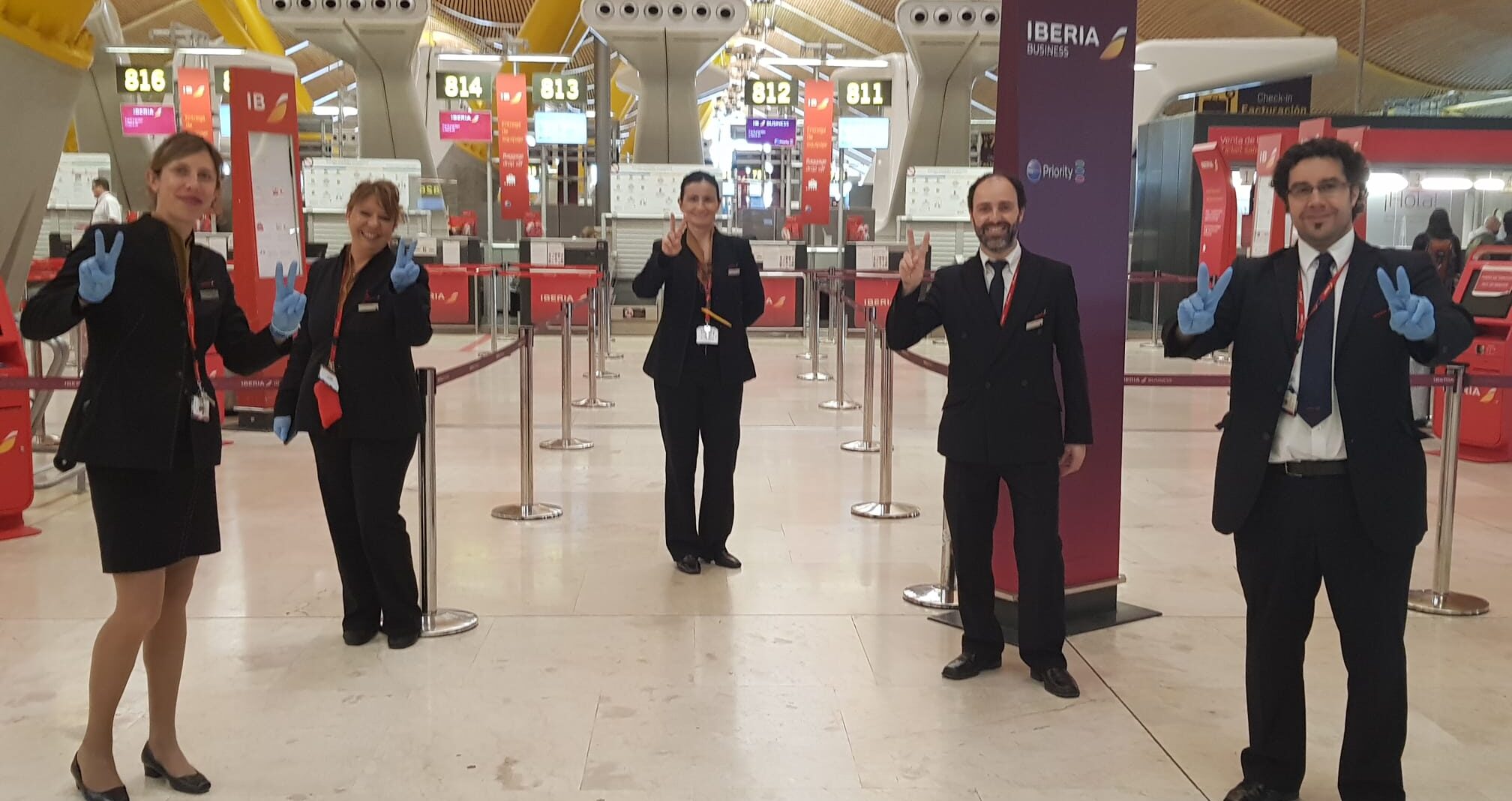
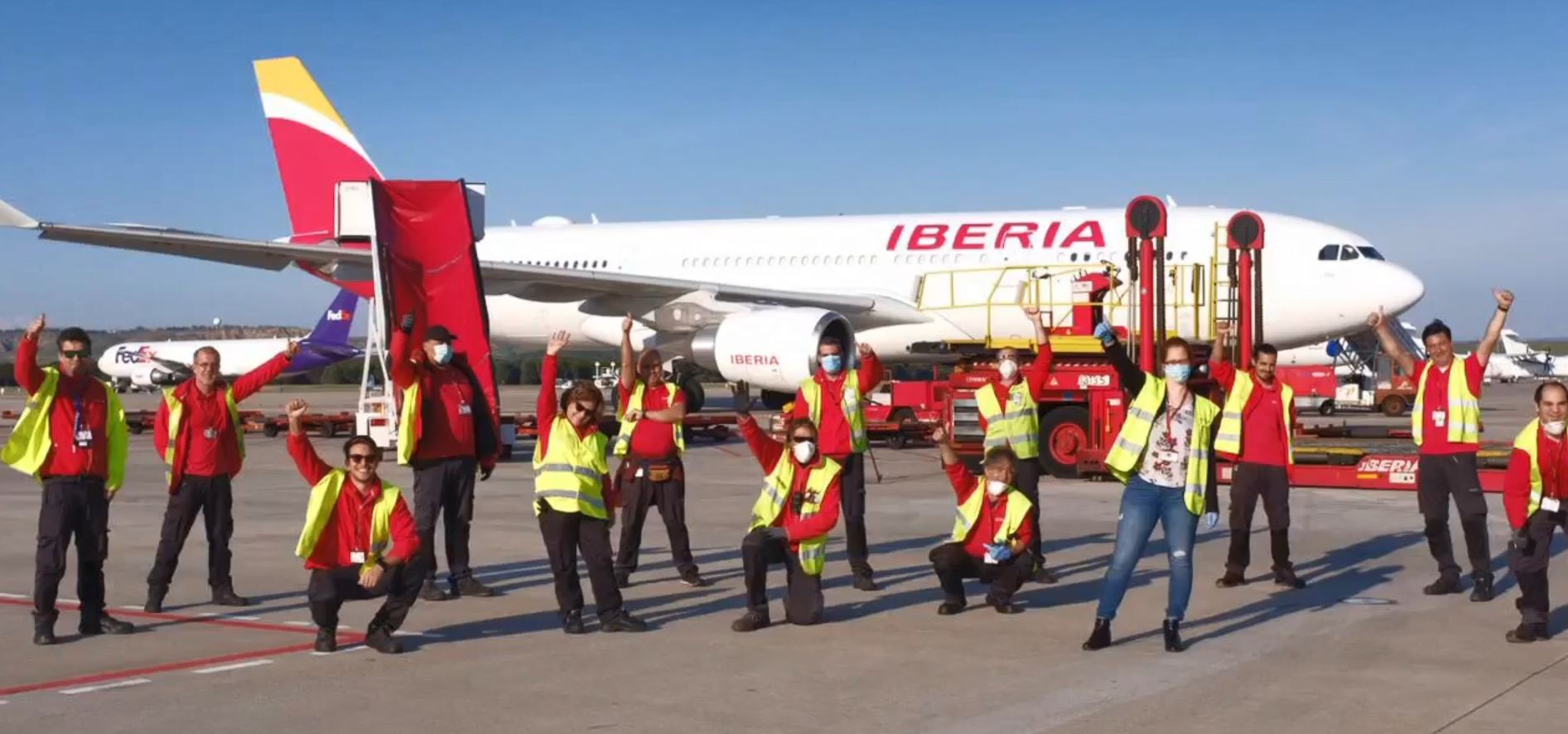
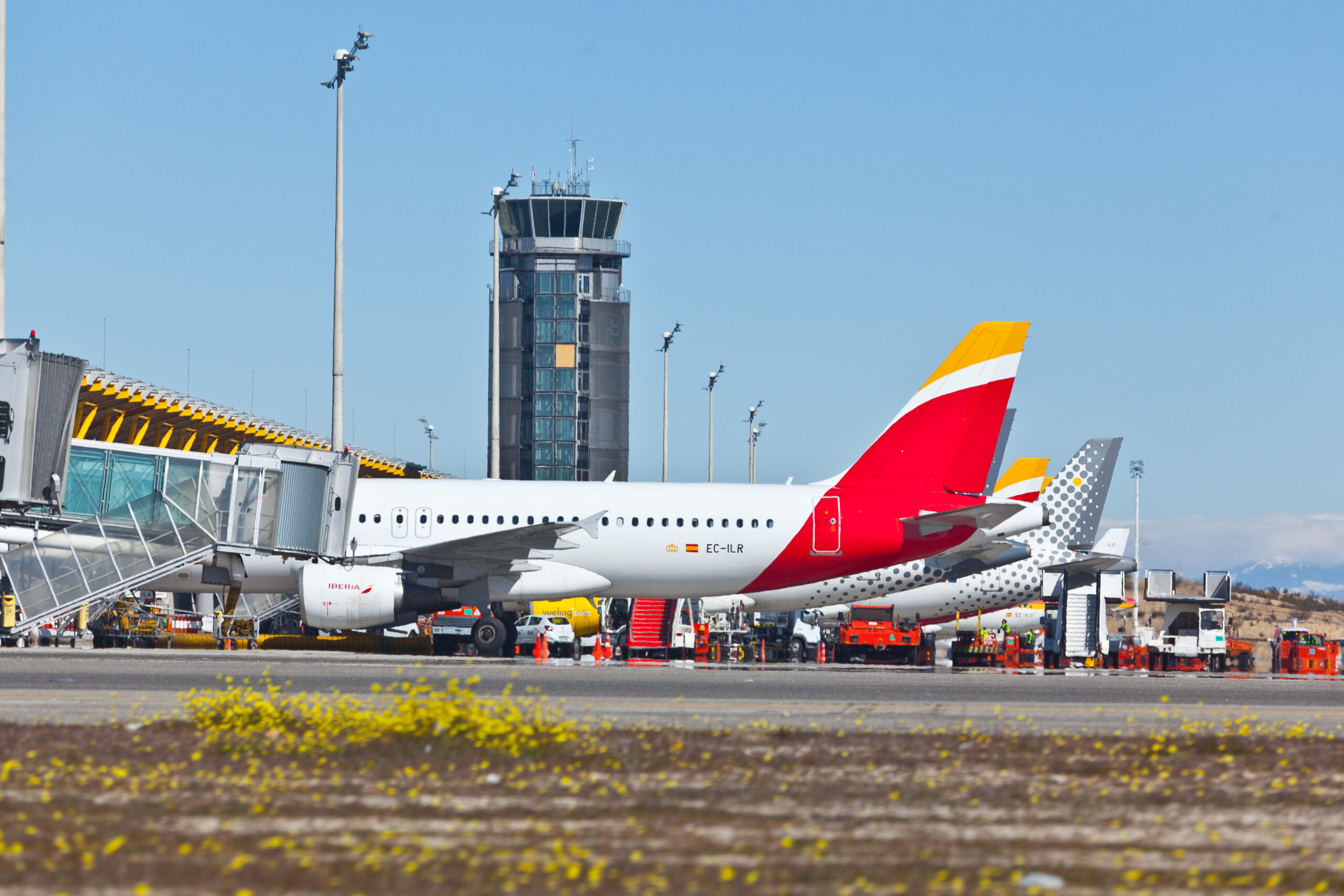
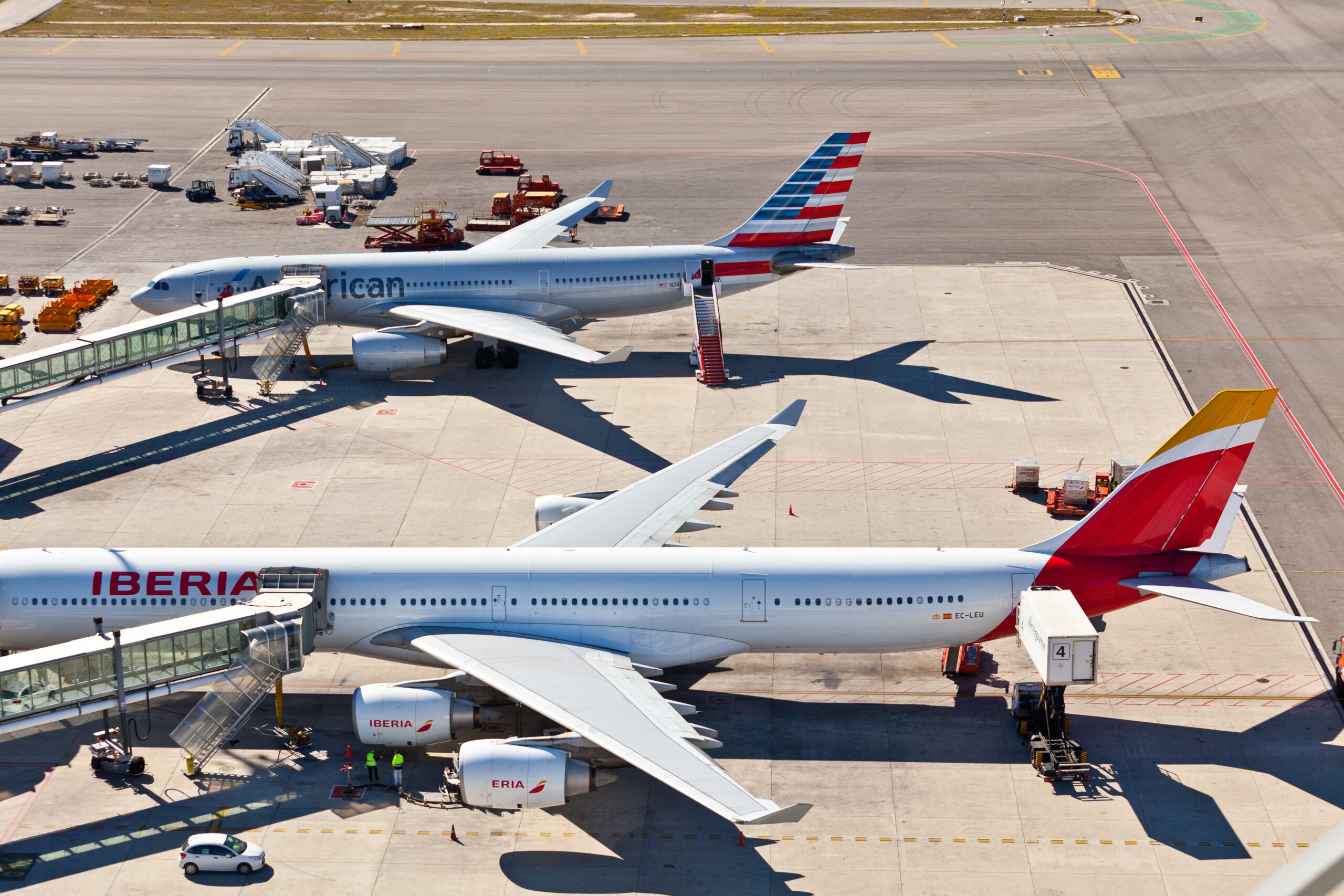

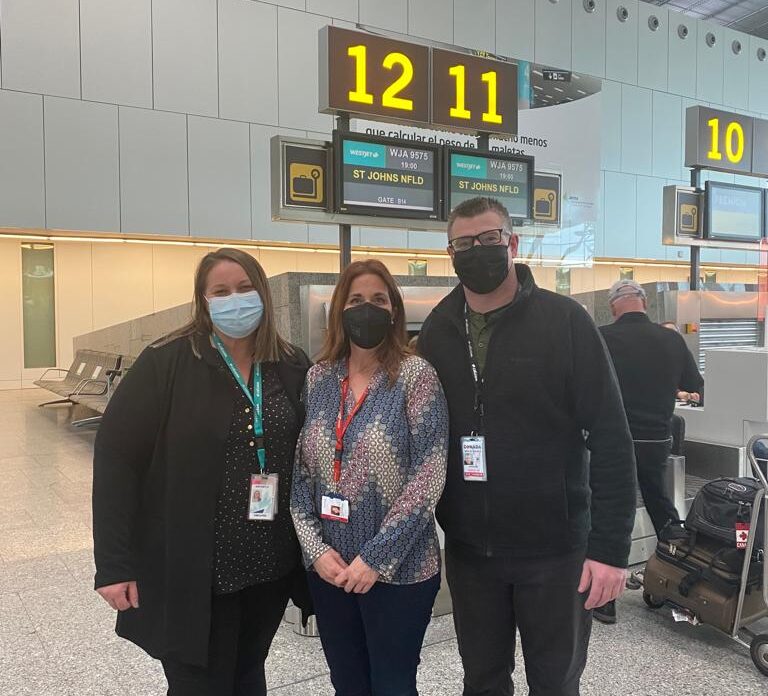 On the one hand, our commercial team designs a tailor-made operation with each client, taking into account all their technical, procedural and operational requirements and centralising all the necessary support by being the people they trust to resolve any H24 queries; our dedicated team at each airport puts the finishing touch with their experience, knowledge and ability to adapt.
On the one hand, our commercial team designs a tailor-made operation with each client, taking into account all their technical, procedural and operational requirements and centralising all the necessary support by being the people they trust to resolve any H24 queries; our dedicated team at each airport puts the finishing touch with their experience, knowledge and ability to adapt.